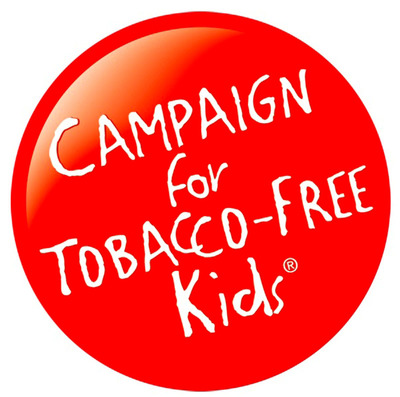Health Groups urge U.S. Federal Trade Commission to investigate companies' failure to disclose paid advertising
WASHINGTON, Aug. 26, 2018 /PRNewswire/ -- Tobacco companies are secretly advertising cigarettes on social media platforms like Instagram, Facebook and Twitter by paying social media influencers - popular young people with large online followings - to post images of cigarettes and smoking as part of a marketing strategy documented in more than 40 countries. Following a two-year investigation by the Campaign for Tobacco-Free Kids and Netnografica LLC, a U.S.-based consumer research and consulting firm specializing in online research, the findings were published today online and detailed in a petition sent to the U.S. Federal Trade Commission (FTC) by nine leading public health and medical groups.

The investigation documents more than 100 social media campaigns by multinational tobacco giants Philip Morris International, British American Tobacco, Japan Tobacco International and Imperial Brands. Netnografica conducted interviews with young social media influencers who were paid to promote cigarettes online to millions of followers without disclosing that they were engaged in paid advertising (those interviewed were granted anonymity to participate in the research).
Key findings from the investigation include:
- Tobacco companies seek out young people who have significant numbers of followers online and pay them to post photos featuring Marlboro, Lucky Strike and other cigarette brands. Social media influencers are trained on what cigarette brands to promote, when to post pictures for maximum exposure and how to take "natural photos" that do not look like staged advertisements. In Italy, influencers paid to promote Lucky Strike cigarettes were instructed to make sure health warnings on cigarette packs were not visible in photos posted online.
- Tobacco companies organize parties and contests with cigarette brand sponsorships and encourage participants to post on their social media accounts.
- Influencers are instructed to include specific hashtags promoting cigarettes on social media posts. The fact that hashtags used by social media influencers are mostly in English indicates tobacco companies are targeting a global audience that includes American youth.
- Combined, these deceptive social media campaigns for tobacco products have been viewed more than 25 billion times worldwide - including 8.8 billion times in the United States, according to social media analytics commissioned as part of this investigation.
These findings were also detailed in a story by The New York Times.
The FTC regulates influencer marketing in the U.S., and the commission's truth-in-advertising standards require influencers to clearly disclose commercial relationships to advertisers when promoting or endorsing their brands on social media. None of the images documented in this investigation included such disclosures, despite extensive evidence that many influencers were paid or incentivized to specifically promote cigarette brands.
The petition filed today calls on the FTC to issue an order requiring tobacco companies to disclose that their social media campaigns are in fact paid advertising for tobacco products by clearly including Sponsored, Promotion or Ad in the content. The petition was filed by the Campaign for Tobacco-Free Kids, American Academy of Family Physicians, American Academy of Pediatrics, American Cancer Society Cancer Action Network, American Heart Association, American Lung Association, the International Union Against Tuberculosis and Lung Disease, Truth Initiative and Vital Strategies.
The social media campaigns have been documented in countries, including Brazil and Uruguay, that ban tobacco advertising on the internet. These campaigns also circumvent - and may violate - the policies of social media companies like Facebook and Instagram that do not allow paid advertising for tobacco products on their platforms.
"Tobacco companies proclaim that they don't target kids, but this investigation shows they are doing the exact opposite - and doing so with a level of sophistication that threatens to addict a new generation and set back progress in reducing smoking around the world," said Matthew L. Myers, President of the Campaign for Tobacco-Free Kids.
The investigation also shows all four major tobacco companies are violating their own internal marketing standards. These standards state that the companies will not engage in viral marketing (British American Tobacco, Imperial Brands) or covert marketing where it is not explicitly clear that cigarettes are being advertised (British American Tobacco), require age verification in online ads (Japan Tobacco International), and will engage in marketing that is "honest and accurate" (Philip Morris International).
"The evidence documented by our research represents cutting-edge, high-budget social media marketing that borrows popular themes and trends from youth culture," said Robert Kozinets, President of Netnografica LLC, who is also a chaired professor at the University of Southern California's communication and business schools.
According to the investigation, the social media marketing campaigns often target low- and middle-income countries facing a disproportionately high burden of tobacco-related death and disease. Tobacco use currently kills more than 7 million people worldwide each year and is projected to kill one billion people this century unless governments take action to prevent it.
For additional resources and to download photos, please visit: http://wheretheressmoke.social/resources
Logo - https://mma.prnewswire.com/media/458701/campaign_for_tobacco_free_kids_logo.jpg

